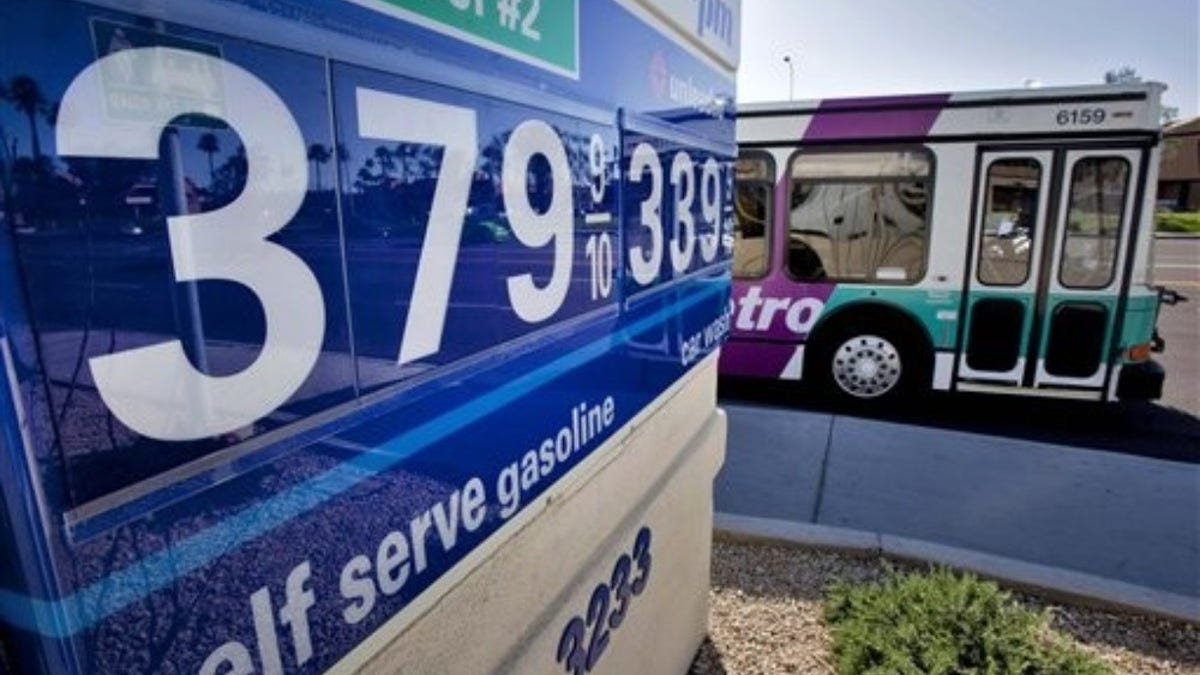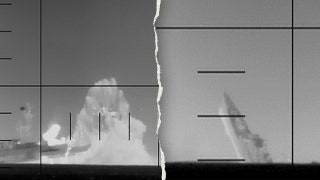
March 8, 2011 Tempe, Ariz.: As gas prices rise, the White House is forced to contemplate tapping the nation's reserves (AP)
As the fighting in Libya helps propel the fastest rising gas prices since Hurricane Katrina, President Obama is under pressure to tap the nation's strategic petroleum reserve.
Democratic Sen. Chuck Schumer on Tuesday joined several House Democrats who said last month that oil from the reserve could "response to supply disruptions and combat the rapid price escalations."
The White House isn't ruling it out. William Daley, the White House chief of staff, previously said the administration is looking at the nation's oil reserves as it considers options for dealing with the spike in gas prices.
And White House Press Secretary Jay Carney said Wednesday that it is an option "we're considering."
Privately, White House officials suggest it's not likely because despite the fighting in Libya, there's no real disruption in the supply of oil, which is what the reserve is intended for.
But Republicans have pounced on suggestions that the reserve could be tapped, saying it is a temporary and short-sighted solution to the rising price of oil.
"The administration now wants to open up the strategic petroleum reserve, which is supposed to be used in severe shortages," Rep. Charles Boustany, R-La., said in a statement. "That's not an energy policy. That actually hurts our country."
Rep. Tom Price, chairman of the House Republican Policy Committee, said, "The Strategic Petroleum Reserve was created to offer relief should there be a temporary disruption in the supply of crude oil, like a devastating hurricane or a blockade of oil imports. It was not intended to be a tool to manipulate the market or provide political relief.
"The rise in gas prices is not merely the consequence of some temporary disruption and will therefore not be solved by some short-term fix," he added. "It is a problem that requires an all-of-the-above energy strategy and one that should begin immediately."
Sen. Lisa Murkowski, R-Alaska, said, "The SPR is our nation's insurance policy against serious disruptions in oil supply. It is not a political lever to be pulled when rising prices at the gas pump demonstrate our lack of a coherent energy policy."
"Right now, we do not face a supply crisis, but we could very well in the near future if unrest in North Africa and the Middle East spreads to other OPEC nations," she added. "If we empty our strategic reserves now, and then face an actual shortage, we will literally have nowhere to turn."
Created in 1975 in the wake of the oil crises, the Strategic Petroleum Reserve emergency supply has been tapped by the federal government to stabilize prices only two times – during the Persian Gulf War in 1991 and after Hurricane Katrina in 2005. The reserve contains 727 million barrels of oil.
Jon Hofmeister, former president of Shell USA, told Fox News that Americans are paying the price for progress.
"What's driving prices higher, starting last August, is a return to economic growth, particularly in Asia," he said.
The last time oil prices spiked in 2008, the global recession brought them down. But before that happened, then candidate Barack Obama expressed support for tapping the reserve.
"We should sell 70 million barrels of oil from our Strategic Petroleum Reserve for less expensive crude," he said.
Experts blamed the 2008 increase on a slowdown in oil production. Some lawmakers say the administration's response to the Deepwater Horizon oil spill in the Gulf of Mexico last year is heading the U.S. in the same direction. Just one deepwater rig is back in service.
Gulf state lawmakers say the permitting agency should cut the red tape.
"The last thing we want them to do is take the time they don't have, the resources they don't have to review every lease to see whether it should be extended or not," Sen. Landrieu said.
The White House says several dozen shallow water rigs are back in service and the loss of deepwater production isn't hurting the U.S.
"Domestic oil production last year rose to its highest level since 2003," Carney said.
Carney says the president's sticking by his demand that in order to get a permit, deepwater drillers prove they can contain a spill like last year's which became the worst in history because BP could not.
Fox News’ Wendell Goler contributed to this report.








































